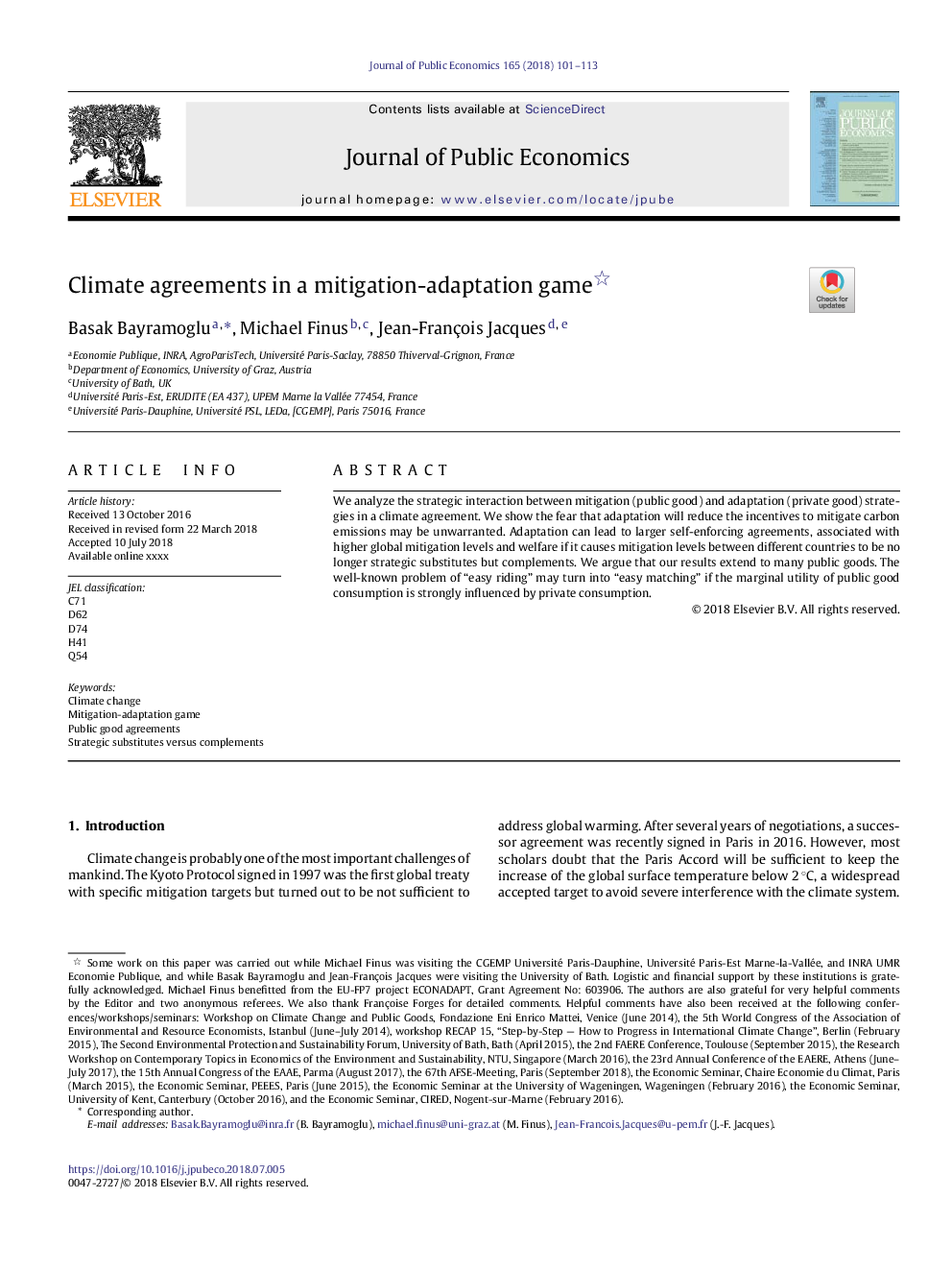| Article ID | Journal | Published Year | Pages | File Type |
|---|---|---|---|---|
| 7369267 | Journal of Public Economics | 2018 | 13 Pages |
Abstract
We analyze the strategic interaction between mitigation (public good) and adaptation (private good) strategies in a climate agreement. We show the fear that adaptation will reduce the incentives to mitigate carbon emissions may be unwarranted. Adaptation can lead to larger self-enforcing agreements, associated with higher global mitigation levels and welfare if it causes mitigation levels between different countries to be no longer strategic substitutes but complements. We argue that our results extend to many public goods. The well-known problem of “easy riding” may turn into “easy matching” if the marginal utility of public good consumption is strongly influenced by private consumption.
Related Topics
Social Sciences and Humanities
Economics, Econometrics and Finance
Economics and Econometrics
Authors
Basak Bayramoglu, Michael Finus, Jean-François Jacques,
